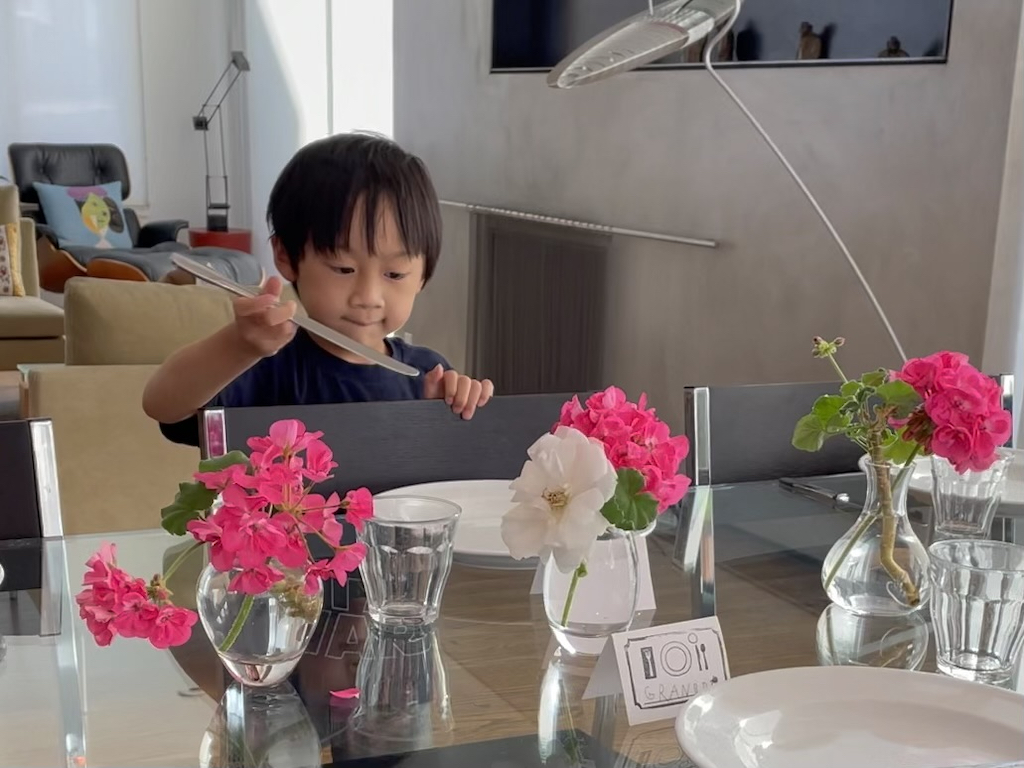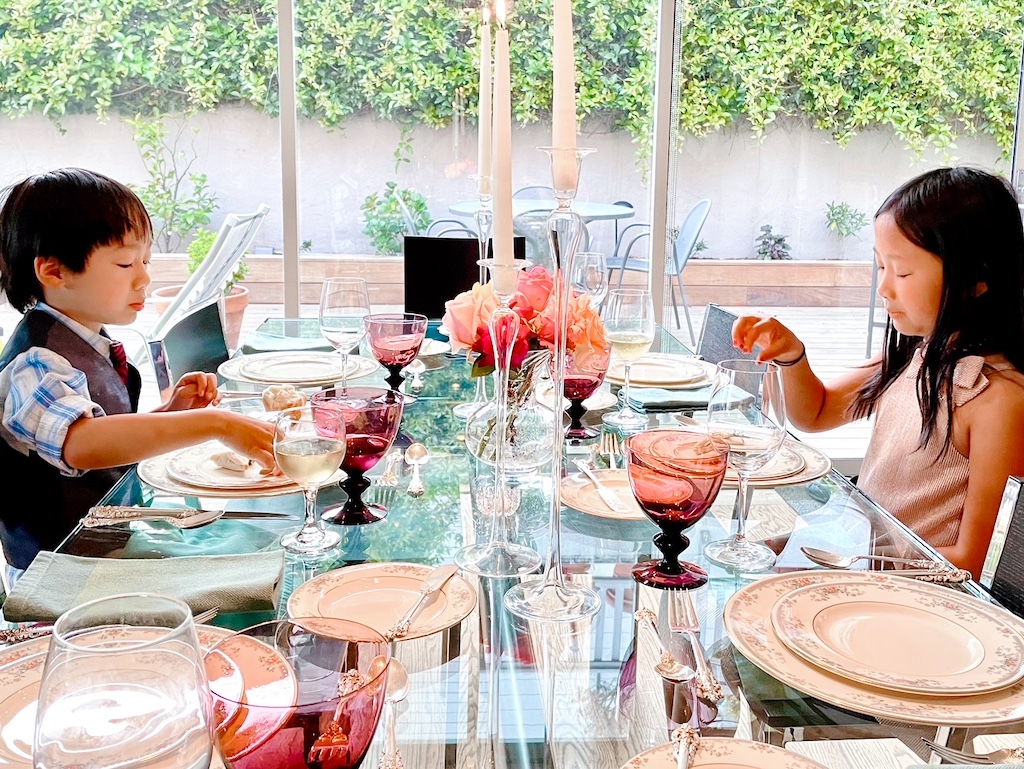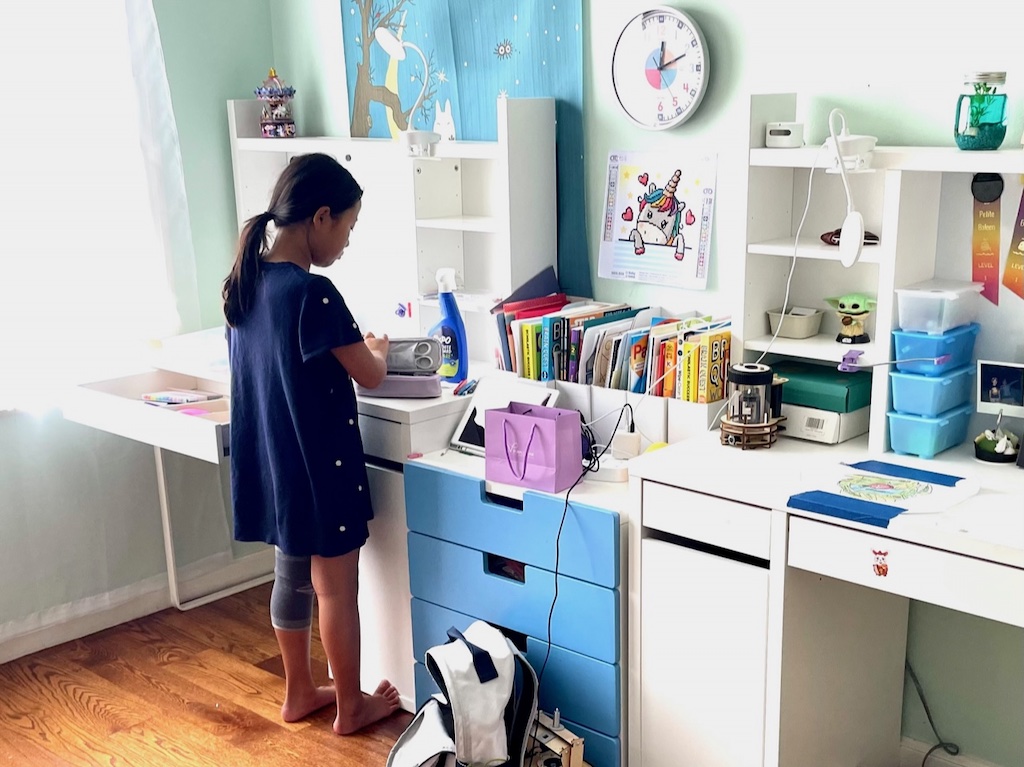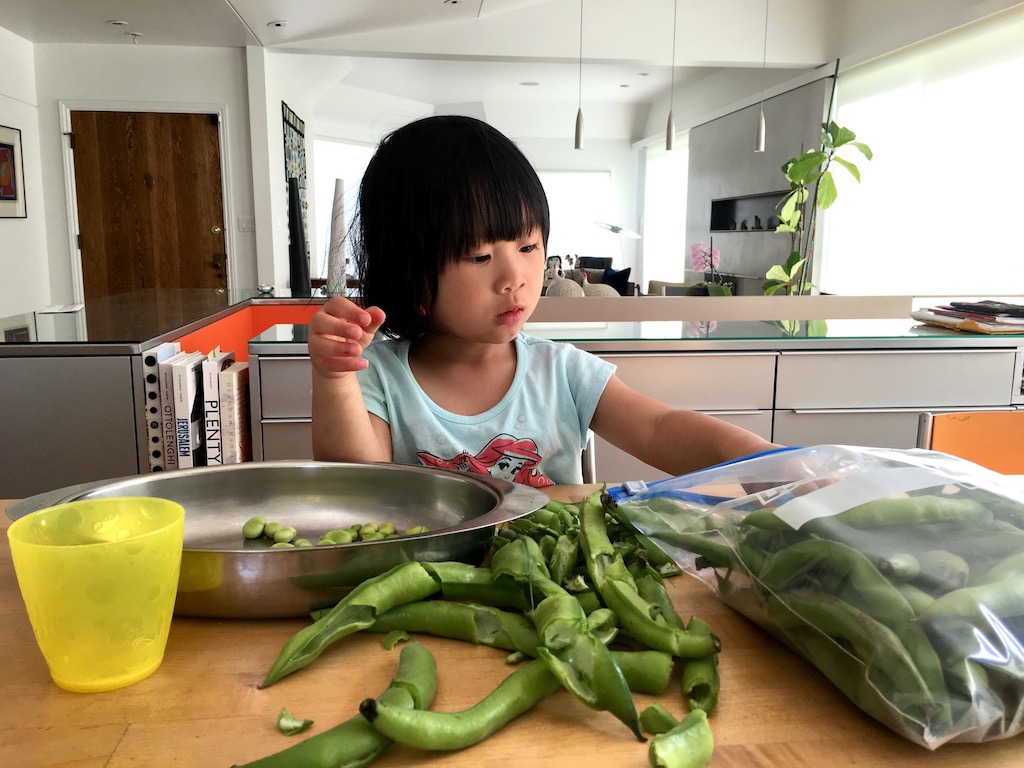Grandma Says: My Best Easy Tips on Grandparenting
I’m not about to tell anyone else how to be a grandparent. We all have our own views. But today, I’m sharing my own best tips on grandparenting, gleaned over 11 years.
I hope you’ll respond with your ideas and views in the comments section below to enrich the conversation.

Shaping Behaviors
The grandkids are truly lovely to be around, just the way they are. Still, we can tweak behaviors to ensure kids grow up to be well-mannered, polite adults by:
- Reminding them to express gratitude with “please” and “thank you.”
- Saying a proper hello at arrival and a proper goodbye at leaving (this includes hugs, the best part).
- Learning to interact easily with adults in conversations.
Curtailing Whining Behavior

At Friday night dinner a few weeks ago, N started whining. I’m a no-whining kind of grandma and usually, I can talk him out of a mood.
But this time, I said jokingly, that I should make a “no whining” sign. The whining stopped as the kids laughed and discussed the idea over dinner, chiming in about what that sign might look like.
By the next Friday night dinner, I had made an actual sign, using a free template from Canva. Originally a “restricted area” sign, I customized it for whining. (If you don’t want to go through the hassle of customizing the template, send me a request in the comments section at the bottom of this post and I will email you my edited version, ready for printing.)
The novelty is the appeal, so if you make one, don’t bring out the sign too often.
Honing Dinnertime Behaviors
Our Friday night dinners are a good time to work on mealtime behavior.
- First, the children set the table; they can start from as young as three. This gives them ownership of the dinner.
- I try to have fresh flowers on the table. Sometimes, we have candles. The idea is to create a civilized atmosphere requiring civilized behavior.

- Kids are expected to sit at the table until everyone is finished or they are excused. I make an effort to include them in the conversations.
- Last year, I created a fine dining experience at home just for the two grandkids. We practiced proper behavior and dining etiquette. Parents and grandparents cooked the meal and served as the waitstaff. The kids got dressed up, had fun, and gained valuable tools for social interaction.

Supporting the Parents
My mom used to say, never spoil the grandkids because you’ll just make it harder for the parents. And respect the parents’ wishes on childrearing.
Of course, many grandparents may feel that spoiling the grandkids is their prerogative. I can understand that.
Still, I pretty much follow my mom’s advice. I remember how much I appreciated that she never interfered with or contradicted my parenting; if she had doubts, she kept them to herself.
One way to support parents is to back them up at critical moments. For example, last week, I had invited Miss T over to spend the afternoon. Unbeknownst to me, for the past days, Miss T’s mom had been getting after her to clean her room. Miss T had been dragging her feet.
A deal was struck that she could go to grandma’s if she would clean the next day. To ensure that she kept her promise, I suggested she text me progress shots. Since she knew grandma was following her efforts, Miss T was more motivated to get the job done. We got the spend an afternoon together AND she cleaned her room.

Allowing Kids to Contribute
Young kids love to help. Any task will usually take longer when you involve children and the end result may not be as perfect as you want. But why not let them, as long as the task is safe to do?
Last year, Miss T, who was then nine, slept over the night before Thanksgiving because she wanted to help with the preparation. She brought her Opinel child-size chef’s knife. We cooked the meal, made two kinds of pie together, and set a festive table.
Whatever I do, Miss T asks, “Can I try that, grandma?” I let her and she learns a new skill, becomes more competent, and builds greater self-confidence, while we spend quality time together.

Other Tips on Grandparenting
Here are some other ways grandparents can help kids to grow.
- Expose them to new experiences. An art museum excursion may not be the kids’ favorite outing, but they’ll learn to appreciate art and beauty over time. Other opportunities for growth are going to a symphony concert, ballet, or opera–especially if there are performances in a park.
- Teach them to appreciate what they have and to avoid waste. We do a lot recycle craft projects with such found items as empty toilet paper rolls and cardboard boxes. It teaches kids to appreciate lowly objects destined for trash, and supercharges their creativity.
- Help them to think of others. We make cards and gifts for special occasions like birthdays, Mother’s Day, and Father’s Day.
Sign Up!
Don’t forget to sign up for my email newsletter. Every Wednesday, I’ll give you a new idea for an activity or insight to nurture the little ones in your life.